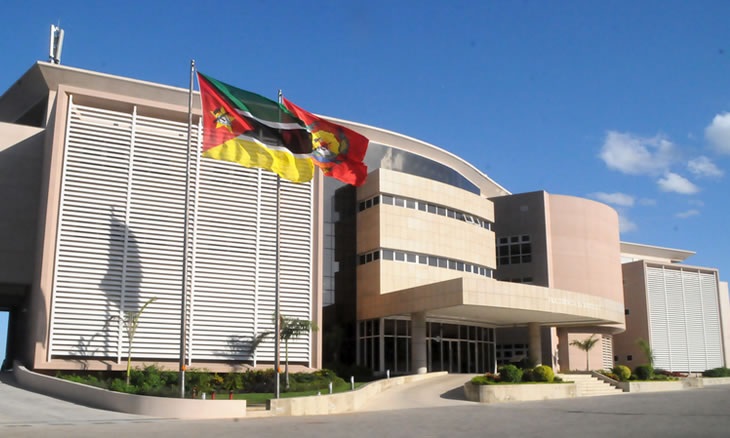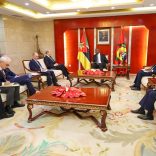Mozambique: President Chapo heads to Japan for TICAD summit, bilateral talks
Mozambique | TSU: Nyusi’s salary will fall by 20%, government says – Carta

in file CoM
One week after the government mandated the Multisectoral Technical Evaluation Commission for the implementation of the Single Salary Table (TSU) to propose concrete steps to reduce the salaries and benefits of the nation’s ‘senior leaders’, the Council of Ministers this week took upon itself the responsibility of advancing with the salary reform of the ‘bosses’, even before the delivery of the concrete proposal by that working group.
According to the Deputy Minister of State Administration and Public Service, Inocêncio Impissa, the government will reduce the basic salary of the President of the Republic by 20%, from the current 331,516.00 to 265,212.80 meticais, a cut of 66,303.20 meticais.
The information was released on Tuesday evening in an interview with Televisión de Moçambique (TVM), after the Council of Ministers definitively approved the TSU figures, the new minimum wage for civil servants and the base wages for entry into the civil service.
In his explanation, Impissa said that the reduction, whose date of entry into force has not yet been made public, aims to “create a closer relationship with the different salary groups in the civil service”.
He also said that, given that the salary of the head of state is in effect a reference salary, the measure will be reflected in the downward revision of salaries for other sovereign and public body office holders.
However, the official did not explain whether the downward revision of the salaries of the country’s senior leaders will include the subsidies for ‘representation costs’, which render their remuneration the highest in the entire apparatus of the state. For example, the head of state currently earns 132,606.40 meticais in representation allowance alone.
Neither did the Council of Ministers spokesman explain, in the TVM ‘Telejornal’ interview, whether the ongoing reform would include the revision of the ‘perks’ granted to the same political leaders.
“It is human nature to want more than what is good”
In the seven-minute interview, Impissa said that the decision taken by the government yesterday “constitutes a crucial stage for the implementation of the salary reform in the state apparatus”, since salary differences between the different careers would be reduced. He also said that this was a historic reform, since, in recent years, percentage increases had ranged from 2% to 7%.
Asked whether the decisions taken on Tuesday solved the employees’ problems, Impissa began his answer with the words, “It is part of human nature to want more than what is good”.
According to Impissa, the salaries approved by the Council of Ministers yesterday are reasonable, insofar as payment depends on the level of productivity. He did however recognize that the TSU did not solve all the problems, beyond the wage differentials, that plague the professional classes.
Impissa said that, going forward, the government would review the professional qualifiers, which would solve most of the problems raised by professional groups such as doctors, teachers and judges.
This was the second Council of Ministers session of 2023 to have the TSU as the main agenda item. Yesterday’s session took place without the presence of Filipe Nyusi, who was in the United Arab Emirates on a working visit.












Leave a Reply
Be the First to Comment!
You must be logged in to post a comment.
You must be logged in to post a comment.